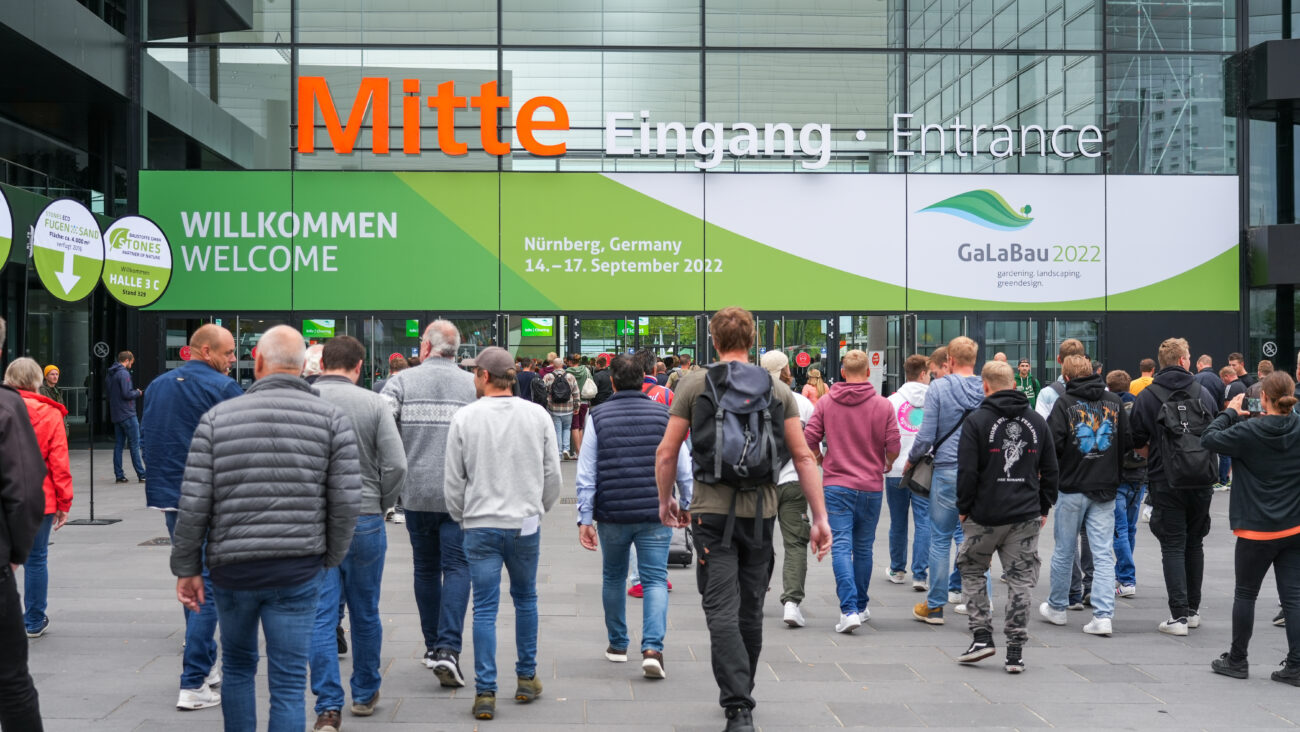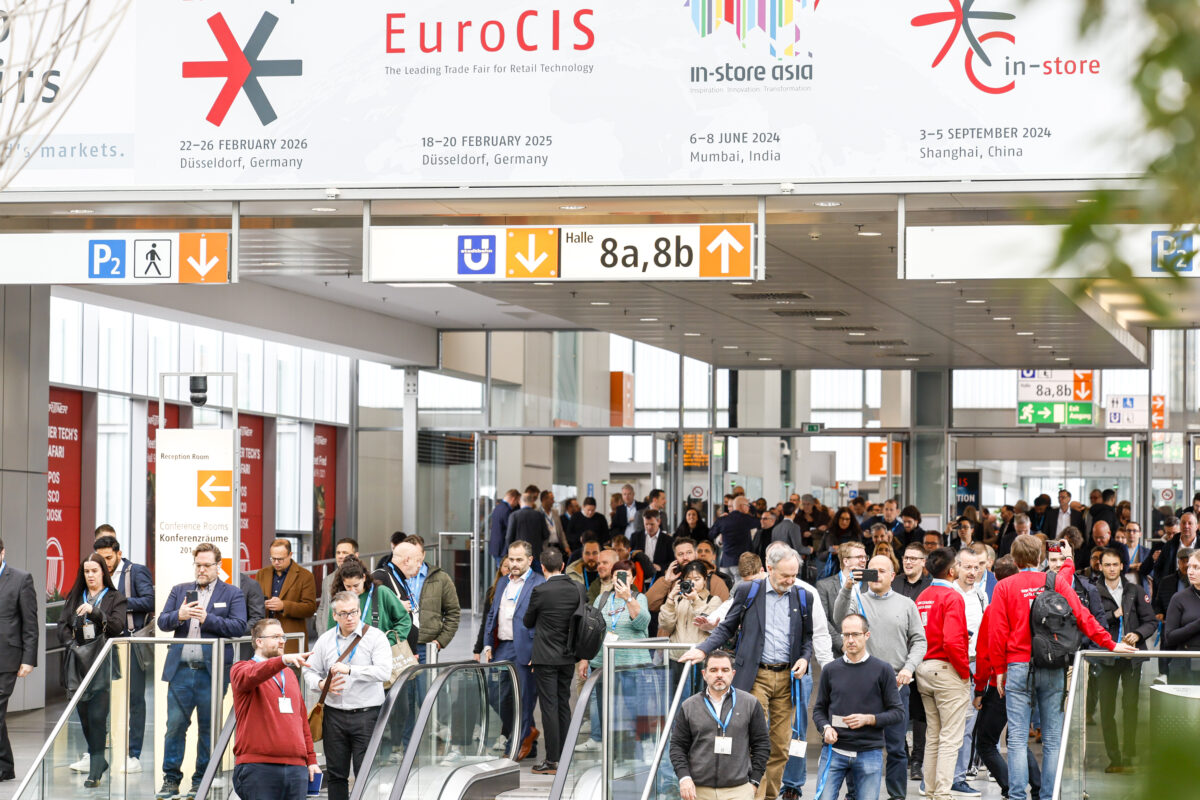
Latest NEWS
Shaping the Future of Real Estate: Revealing the Top 5 Key Trends at Expo Real Munich 2024

Expo Real Munich 2024: Unveiling the Latest Trends in Real Estate
Expo Real Munich 2024: Unveiling the Latest Trends in Real Estate

One of the key trends that will be unveiled at Expo Real Munich 2024 is the rise of sustainable and eco-friendly buildings. With increasing awareness of climate change and the need to reduce carbon emissions, developers are focusing on creating buildings that are energy-efficient and environmentally friendly. This trend is not only driven by a desire to protect the planet, but also by the growing demand from tenants and investors for sustainable properties.
Another trend that will be highlighted at Expo Real Munich 2024 is the integration of technology in real estate. From smart homes to virtual reality tours, technology is revolutionizing the way we buy, sell, and manage properties. Real estate professionals are embracing digital tools and platforms to streamline processes, improve efficiency, and enhance the customer experience. This trend is expected to continue to grow as technology continues to advance and become more accessible.
In addition to sustainability and technology, Expo Real Munich 2024 will also shed light on the growing importance of wellness in real estate. Developers are recognizing the value of creating spaces that promote health and well-being. From incorporating green spaces and fitness facilities to prioritizing natural light and air quality, wellness-focused buildings are becoming increasingly popular. This trend is driven by the desire for a healthier lifestyle and the recognition that well-designed spaces can have a positive impact on productivity and overall well-being.
Furthermore, Expo Real Munich 2024 will showcase the increasing popularity of mixed-use developments. Gone are the days of single-purpose buildings; today’s real estate projects are designed to be vibrant, dynamic spaces that combine residential, commercial, and recreational elements. Mixed-use developments offer convenience, diversity, and a sense of community, making them highly sought after by both residents and investors. This trend is driven by the desire for a more integrated and sustainable urban environment.
Lastly, Expo Real Munich 2024 will reveal the growing importance of data and analytics in real estate. With the advent of big data and advanced analytics tools, real estate professionals are able to make more informed decisions and better understand market trends. Data-driven insights are invaluable in identifying investment opportunities, predicting market fluctuations, and optimizing property management. This trend is expected to continue to grow as the industry becomes increasingly data-driven.
In conclusion, Expo Real Munich 2024 is set to be a groundbreaking event that unveils the top five key trends shaping the future of real estate. From sustainability and technology to wellness and mixed-use developments, these trends are transforming the industry and presenting new opportunities for investors and developers. By staying informed and embracing these trends, real estate professionals can position themselves for success in the ever-evolving real estate landscape.
Sustainable Real Estate Development: Paving the Way for a Greener Future
Sustainable Real Estate Development: Paving the Way for a Greener Future
The real estate industry has long been associated with environmental concerns, from the depletion of natural resources to the emission of greenhouse gases. However, in recent years, there has been a growing recognition of the need for sustainable real estate development. This shift in mindset was evident at Expo Real Munich 2024, where the top 5 key trends in sustainable real estate development were revealed.
The first trend that emerged at the expo was the increasing focus on energy efficiency. Real estate developers are now prioritizing the use of renewable energy sources and implementing energy-saving technologies in their projects. This not only reduces the carbon footprint of buildings but also lowers operating costs for tenants. From solar panels to smart building management systems, the possibilities for energy-efficient real estate development are vast.
Another key trend highlighted at the expo was the integration of green spaces into urban developments. As cities become more crowded, the importance of providing residents with access to nature cannot be overstated. Real estate developers are now incorporating parks, gardens, and rooftop green spaces into their projects, creating a healthier and more livable environment for residents. These green spaces not only improve air quality but also promote physical and mental well-being.
The third trend that emerged at the expo was the adoption of sustainable building materials. Traditional construction materials, such as concrete and steel, have a significant environmental impact due to their high carbon emissions and resource depletion. Real estate developers are now turning to alternative materials, such as bamboo and recycled materials, which are not only more sustainable but also offer unique design possibilities. By using these materials, developers can reduce their environmental footprint while creating visually stunning and innovative buildings.
Water conservation was another key trend discussed at the expo. With water scarcity becoming an increasingly pressing issue, real estate developers are implementing water-saving measures in their projects. From rainwater harvesting systems to low-flow fixtures, these initiatives not only reduce water consumption but also lower utility costs for residents. Additionally, developers are exploring the use of graywater recycling systems, which treat and reuse wastewater, further reducing the strain on freshwater resources.
The final trend that emerged at the expo was the concept of circular economy in real estate development. Traditionally, the construction industry has been characterized by a linear model, where resources are extracted, used, and then discarded. However, real estate developers are now embracing the circular economy approach, which aims to minimize waste and maximize resource efficiency. This involves designing buildings for adaptability and reusability, as well as implementing recycling and waste management systems. By adopting this approach, developers can reduce construction waste, conserve resources, and create a more sustainable built environment.
In conclusion, sustainable real estate development is shaping the future of the industry. The top 5 key trends revealed at Expo Real Munich 2024 highlight the industry’s commitment to creating a greener future. From energy efficiency and green spaces to sustainable building materials and water conservation, real estate developers are taking proactive steps to minimize their environmental impact. By embracing the circular economy approach, they are not only reducing waste but also maximizing resource efficiency. As the demand for sustainable buildings continues to grow, these trends will undoubtedly play a crucial role in shaping the future of real estate.
Smart Cities and Urban Planning: Revolutionizing the Way We Live and Work
The real estate industry is constantly evolving, and staying ahead of the curve is crucial for success. One event that provides valuable insights into the future of real estate is Expo Real Munich. Held every year, this international trade fair brings together industry professionals, investors, and innovators to discuss the latest trends and developments. In 2024, Expo Real Munich showcased several key trends that are set to shape the future of real estate. One of the most prominent trends is the concept of smart cities and urban planning.
Smart cities are revolutionizing the way we live and work. With advancements in technology, cities are becoming more connected and efficient, offering a higher quality of life for residents. At Expo Real Munich, experts discussed how smart cities are transforming urban planning and the real estate industry as a whole.
One of the key aspects of smart cities is the use of technology to improve sustainability. With the growing concern over climate change, cities are implementing innovative solutions to reduce their carbon footprint. For example, smart buildings are equipped with sensors and automation systems that optimize energy consumption. These buildings can adjust lighting, heating, and cooling based on occupancy, resulting in significant energy savings. Additionally, smart cities are incorporating renewable energy sources such as solar panels and wind turbines to generate clean energy.
Another important aspect of smart cities is the integration of technology to enhance mobility. With the rise of electric vehicles and ride-sharing services, cities are rethinking their transportation infrastructure. At Expo Real Munich, experts discussed how smart cities are implementing intelligent transportation systems that use real-time data to optimize traffic flow and reduce congestion. This not only improves the commuting experience for residents but also reduces air pollution and greenhouse gas emissions.
In addition to sustainability and mobility, smart cities are also focusing on improving the quality of life for residents. Expo Real Munich highlighted how technology is being used to create smart homes that offer convenience and comfort. For example, smart homes are equipped with voice-activated assistants that can control lighting, temperature, and security systems. These homes also feature advanced home automation systems that allow residents to remotely monitor and control various aspects of their homes. This level of connectivity and convenience is transforming the way we live and interact with our living spaces.
Furthermore, smart cities are leveraging technology to enhance safety and security. At Expo Real Munich, experts discussed how cities are using data analytics and artificial intelligence to improve public safety. For example, smart surveillance systems can analyze video footage in real-time to detect suspicious activities and alert authorities. Additionally, smart cities are implementing emergency response systems that use sensors and predictive analytics to identify potential risks and respond proactively.
Overall, smart cities and urban planning are revolutionizing the real estate industry. Expo Real Munich 2024 showcased the top trends in this field, highlighting the importance of sustainability, mobility, quality of life, and safety. As technology continues to advance, it is clear that smart cities will play a significant role in shaping the future of real estate. By embracing these trends, industry professionals can stay ahead of the curve and capitalize on the opportunities presented by this rapidly evolving landscape.
Digital Transformation in Real Estate: Embracing Technology for Enhanced Efficiency
Digital Transformation in Real Estate: Embracing Technology for Enhanced Efficiency
The real estate industry has always been known for its traditional practices and slow adoption of new technologies. However, in recent years, there has been a significant shift towards embracing digital transformation to enhance efficiency and improve the overall real estate experience. This trend was evident at Expo Real Munich 2024, where the top five key trends in digital transformation in real estate were revealed.
The first trend that emerged at Expo Real Munich 2024 was the use of artificial intelligence (AI) and machine learning in real estate. AI has the potential to revolutionize the industry by automating repetitive tasks, analyzing large amounts of data, and providing valuable insights. From property valuation to tenant screening, AI-powered tools can streamline processes and make them more accurate and efficient.
Another key trend highlighted at the event was the adoption of blockchain technology in real estate transactions. Blockchain offers a secure and transparent way to record and verify property ownership, contracts, and transactions. By eliminating the need for intermediaries and reducing the risk of fraud, blockchain can simplify and expedite the buying and selling process, making it more efficient and cost-effective.
The third trend that emerged at Expo Real Munich 2024 was the integration of virtual reality (VR) and augmented reality (AR) in real estate marketing and property visualization. VR and AR technologies allow potential buyers and tenants to virtually tour properties, visualize renovations, and experience spaces before making a decision. This not only saves time and resources but also enhances the overall customer experience.
The fourth trend showcased at the event was the rise of smart buildings and the Internet of Things (IoT) in real estate. IoT devices, such as sensors and smart meters, can collect and analyze data on energy usage, occupancy rates, and maintenance needs. This data can then be used to optimize building operations, reduce energy consumption, and improve tenant comfort. Smart buildings not only enhance efficiency but also contribute to sustainability and cost savings.
Lastly, Expo Real Munich 2024 highlighted the growing importance of data analytics and predictive modeling in real estate. By analyzing historical data and using predictive algorithms, real estate professionals can make more informed decisions regarding property investments, pricing, and market trends. Data analytics can also help identify potential risks and opportunities, enabling proactive decision-making and mitigating potential losses.
In conclusion, the real estate industry is undergoing a digital transformation, embracing technology to enhance efficiency and improve the overall real estate experience. Expo Real Munich 2024 revealed the top five key trends in digital transformation in real estate: the use of AI and machine learning, the adoption of blockchain technology, the integration of VR and AR, the rise of smart buildings and IoT, and the importance of data analytics and predictive modeling. These trends have the potential to revolutionize the industry, making processes more efficient, transparent, and customer-centric. As the industry continues to evolve, it is crucial for real estate professionals to embrace these technologies and stay ahead of the curve to shape the future of real estate.
Real Estate Investment and Financing Strategies: Navigating the Changing Landscape for Success
The real estate industry is constantly evolving, and staying ahead of the curve is crucial for success. Expo Real Munich 2024, one of the largest real estate trade fairs in Europe, provided valuable insights into the key trends shaping the future of real estate investment and financing strategies. In this article, we will reveal the top 5 trends that emerged from the event, offering a glimpse into the changing landscape of the industry.
First and foremost, sustainability has become a top priority for real estate investors and developers. With increasing awareness of climate change and the need for environmentally friendly practices, sustainable buildings are in high demand. Expo Real Munich showcased numerous innovative projects that prioritize energy efficiency, renewable energy sources, and green building materials. Investors are recognizing the long-term benefits of sustainable properties, not only in terms of reduced environmental impact but also in terms of cost savings and increased tenant satisfaction.
Another key trend highlighted at Expo Real Munich was the rise of technology in real estate. From smart buildings to virtual reality tours, technology is revolutionizing the way properties are bought, sold, and managed. Real estate professionals are embracing digital platforms and tools to streamline processes, enhance customer experiences, and gain a competitive edge. The integration of artificial intelligence and data analytics is also transforming decision-making processes, allowing investors to make more informed choices based on real-time market insights.
Furthermore, Expo Real Munich shed light on the growing importance of social factors in real estate investment. The pandemic has highlighted the need for flexible and adaptable spaces that can accommodate changing work and lifestyle preferences. As remote work becomes more prevalent, investors are seeking properties that offer amenities such as co-working spaces, communal areas, and wellness facilities. Additionally, there is a rising demand for affordable housing solutions, as housing affordability continues to be a pressing issue in many cities. Real estate professionals are recognizing the social impact of their investments and are actively seeking opportunities to create positive change in communities.
In addition to sustainability, technology, and social factors, Expo Real Munich emphasized the significance of international investment in the real estate market. Globalization has opened up new opportunities for investors to diversify their portfolios and tap into emerging markets. The event showcased projects from around the world, highlighting the potential for high returns in regions such as Asia, Africa, and Latin America. Cross-border collaborations and partnerships are becoming increasingly common, as investors seek to leverage local expertise and capitalize on global trends.
Lastly, Expo Real Munich underscored the importance of risk management and resilience in real estate investment and financing strategies. The industry is not immune to economic downturns and market fluctuations, and investors must be prepared to navigate uncertainties. The event featured discussions on strategies for mitigating risks, such as diversifying portfolios, conducting thorough due diligence, and implementing contingency plans. Real estate professionals are recognizing the need for proactive risk management to safeguard their investments and ensure long-term success.
In conclusion, Expo Real Munich 2024 provided valuable insights into the key trends shaping the future of real estate investment and financing strategies. From sustainability and technology to social factors and international investment, the industry is undergoing significant transformations. Real estate professionals must adapt to these changes and embrace innovative approaches to stay ahead of the curve. By staying informed and proactive, investors can navigate the changing landscape of the real estate industry and position themselves for success in the years to come.










